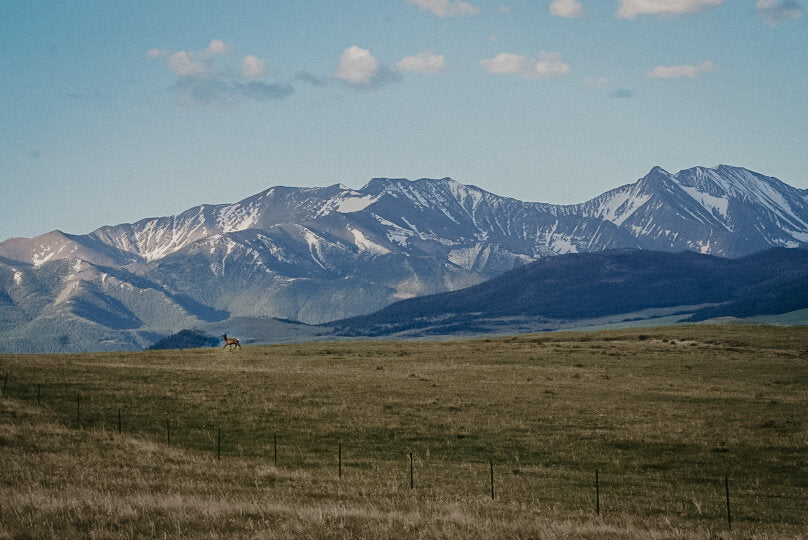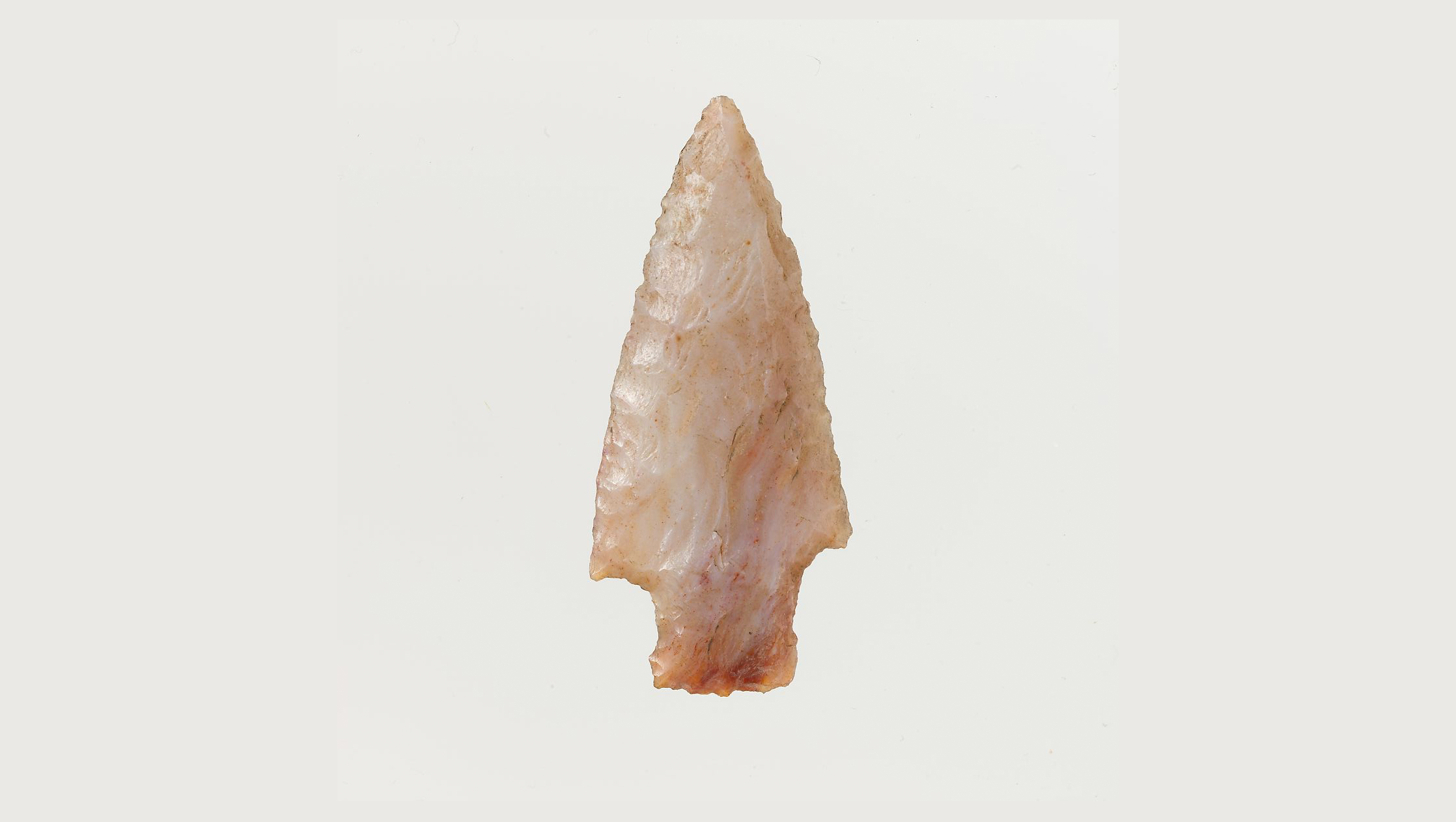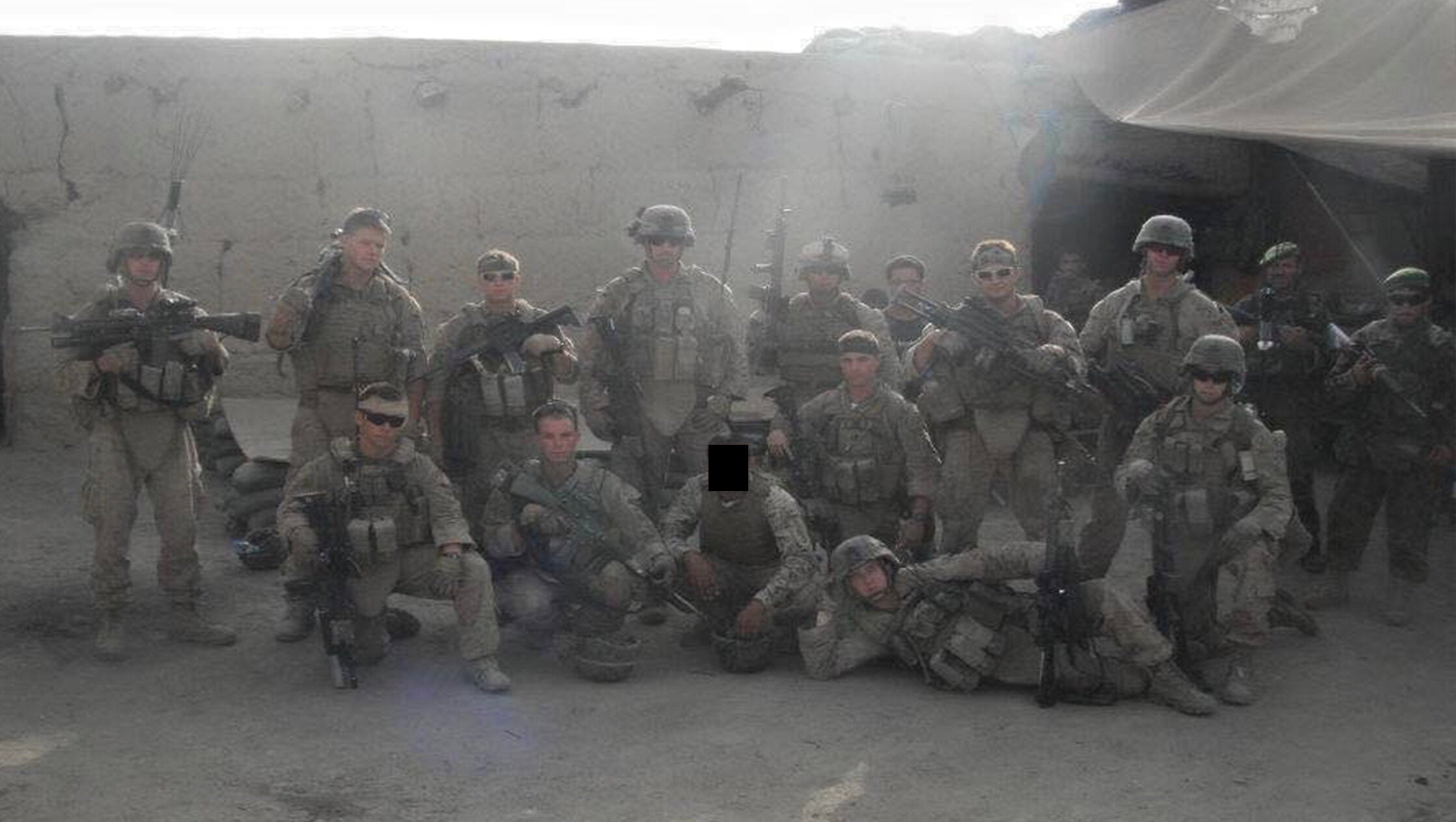
Frontier Notes: The Mountains and My Azimuth
There’s a heartbeat out here. The organ is no different. The body it resides in is no different. But the ferocity she beats with here is tangible. It’s not shrouded by structures or tempered by pavement. It causes pause; an immediate neck-snapping call to her attention. Stop. Look. Listen. Smell. The same gusts that make the growing spring prairie grass and pasqueflowers dance along the high plateaus and buttes, make each hair on my neck stand up and dance in acknowledgment of the reminder she sends me each day I work diligently through these pastures: “You are infinitely small.”
I acknowledge her with deep metered breaths and a drawing back from tunneled views on the section of fence I’m repairing. I walk, bending and reaching to pluck a cluster of fresh wildflowers that I stow away in an envelope, adding to a year-old collection; a practice I began after losing my cattle dog to a rattlesnake bite—the memory for me, the flower for Wyatt. I take a moment to rest on the grass. As my peripheral attention returns, I notice the tree swallows dancing, yellow breast warblers, and common yellowthroats singing their “witchy-witchy” spring songs as they bounce down the top strand of wire I just tightened. Down in the willow swamps along the creek the whitetail feast on the bountiful yields of spring rains and late melts. I can even make out mergansers and drake mallards breaking still water as they cruise in over land low and slow, flaring up to break still water with their landing wakes; these Montana mallards are the biggest I’ve ever seen. Along the plateaus, west of the butte, I rest on; I watch three young cow elk move effortlessly, fast and strong through the grass and down the western edge toward the Crazy Mountains. I am utterly surrounded, she completely consumes me and I am infinitely small.

These places, the big mountains, they’ve always been the inner seams of the cloverleaf patterns I’ve charted through in life. Out to seek—returning back—out to seek—returning back; the rotational momentum of life on an evolving road map constantly pushing me out to learn and grow, but never failing to draw me back to where the rhythmic heartbeat that surrounds us all has always felt loudest and most profound to me.
I can remember setting out for the mountains almost fifteen years ago at the first opportunity I had to leave home. It was such a violent thrust toward this “call to adventure,” as Joseph Campbell once described it. Its origins were unknown. Maybe it had been lying dormant inside my heart or soul or mind as I grew and came of age, only to one day awaken inside of me, in the same way, one is jolted awake in the middle of the night by terrifying thoughts or dreams they never intend on having, but they come regardless. The alarming aspect of this call was never the fear of change or new unknowns, but rather the fear of sedentation that felt as though it might set in with each passing hour I didn’t answer the call to seek out. Something was calling, and I would answer.

Maybe I understand John Muir more now than I thought I once did when I was younger; maybe the message he was conveying wasn’t as deep or profound as I told myself it was when I was young and less versed in the realities of life, and the lessons of experience, growth, seeking, love, loss, war, friendship. I think now I see the message was much simpler, and its simplicity was why it rang so loudly in my mind. I was going purely because I knew I didn’t want to live with the thoughts of what could have been if I hadn’t. I was going out to seek something but found out that in my pursuit of those mountains, like Muir, “I was truly going in.”
Fifteen years later, I look back at the jolt that careened me off of a sedentary path. I see that everything I’ve sought out to learn or experience since that point has been to acknowledge the same simplicity of the original message—whatever earthly surface serves as my deathbed and houses my bones, it won’t be occupied with contemplations of what could have been if I hadn’t. It wasn’t just that I went out fifteen years ago to find I was “truly going in.” It’s that I began my endless “going out” fifteen years ago so that I could spend the rest of my life always “going in.”

My initial arrival in the mountains was simply a baptism in the wild that one only feels from the cold waters once they fully emerge. From those baptismal waters, I arose to understand the importance of never-ending apprenticeship to this life and land. I’ll honor it until the day this skin sack filled with bones and muscle and tissue decides it can no longer carry the soul using it as a means for earthly transportation.

There are so many methods of calibration and balance we use consciously and subconsciously in our lives. We use our beds to sleep at night to recalibrate us for the next morning. We use food and water to replenish our body’s need for continued movement and life. We seek the solace of conversation and friendship to ensure that our compasses of morality and decision-making in life continue on the trajectory we set for them. We dead-reckon through life with each of these things righting our course as we drift. The mountains have always maintained my azimuth, and I set my life on a course to stray from them from time to time to become the best version of myself and to be the best student of life I can be, and I return to them to check my azimuth. I have had the opportunity to pursue mountains, and rivers and wild, let it shape me and show me the depths of her canyons and her peaks while navigating my own. The jagged snowcapped edges of her have served as bookends through chapters of youth, through my life experienced in war, and through my life I’ve been learning to live ever since. These azimuth checks don’t give me a numerical degree on which I should be traveling; they simply remind me of what I strive to never feel far from—the knowledge that I am infinitely small.

I was on the last 17-mile stretch of road back to the ranch the other day. The Crazy Mountains were tucked behind spring snow clouds, and I drove through landscape seemingly devoid of any other humans. The pasture stretched out to the foothills of the range, endless ranchland, horses stoic in pose and cattle inundated by the season of new life; a vast emptiness on the surface, but producing a sense of fullness that can only truly be felt. And I thought of a close friend from my past who’d recently told me he’d been accepted into Harvard, and then of another I’d experienced 63 days of a ritualistic warrior development with, who had also been accepted to Harvard. I thought of the scholars they’d become. Then I thought of the others. The doctor who’d invented and patented lifesaving equipment who also dreamed of the day he’d soon be ranching again. I thought of the writers, the poets, the philanthropists, the artists, the farmers, the cowboys, the researchers, the scientists, the entrepreneurs, all men I knew. The men I continue to watch with eager eyes. And I thought of the men still choosing a life of sacrifice. All these men share a common foundation stemming from a desire to learn feverishly until final breaths are drawn, a desire to constantly check their own azimuths along their own paths. And I was so incredibly grateful; grateful in the same way I was for that 17-mile stretch of fulfilling solitude. This is the company I keep. Life becomes a privilege once you learn to know a group of men you’re willing to die alongside. It’s a greater privilege to know a group of men you’re grateful to live alongside. We were students who became warriors, and we remain students until the day we take our final dirt naps.

A red-winged blackbird flared up, catching the top strand of the wired fence for a reprieve from the powerful gusts that drew past like deep breaths across our perch on the butte. It’s quiet, so quiet, but there is a heartbeat out here. Tangible. And I look west, and I close my eyes, I feel the wind, I feel the salted sweat sting the barbed wire cuts on my arms from a long day of earned breaths. My compass is set. My azimuth has been checked.
Written By Paul Handelman
June 28, 2021

Paul Handelman is a cattle rancher living in Central Montana, a writer, songwriter, and musician. He is a graduate of the University of Montana where he studied environmental agriculture. Paul served for five years in the United States Army as an infantry officer and a platoon leader in the 75th Ranger Regiment. After leaving the military he pursued ranching and agricultural careers in Missouri, Texas, Oklahoma, and Montana while also pursuing a successful career as a songwriter and musician.









